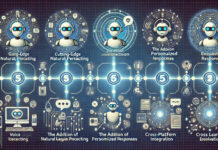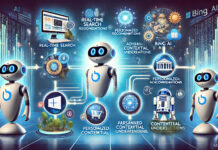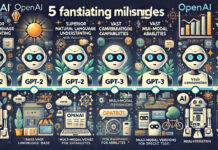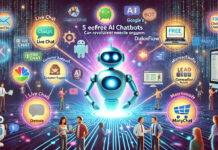Table of Contents
In today’s rapidly evolving tech landscape, AI-driven software development is becoming increasingly central to how applications are built, tested, and deployed. The integration of AI-driven software development tools has revolutionized the way we approach coding, making processes faster, more efficient, and often more reliable. However, even with these advancements, the human element in software engineering remains irreplaceable. Software engineers bring creativity, contextual understanding, and complex problem-solving skills that AI simply cannot replicate. This article delves into the crucial role of software engineers in an AI-dominated future, highlighting the unique qualities they contribute to AI-driven software development. As AI continues to reshape the industry, understanding the balance between human expertise and AI-driven automation is essential for driving innovation and maintaining high-quality software development.
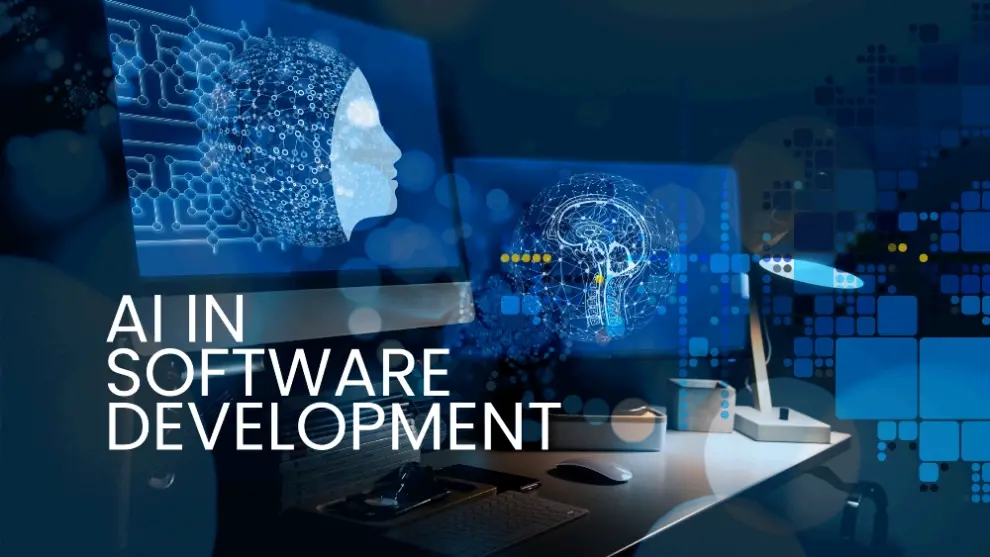
1. The Role of AI in Software Development
Artificial intelligence (AI) is revolutionizing the entire landscape of software development, testing, and deployment by introducing new levels of automation, precision, and speed. The integration of AI into these processes is not merely an enhancement but a profound transformation that is reshaping the industry. One of the most significant contributions of AI is its ability to automate routine and repetitive tasks, which traditionally consumed a considerable amount of time and resources. This automation extends to various aspects of software development, including code generation, testing, and bug detection.
AI-driven code generators, for example, are capable of producing functional code snippets with remarkable speed and accuracy, which accelerates the development process and reduces the likelihood of human error. These tools are particularly useful in scenarios where rapid prototyping or iterative development is required, as they allow developers to focus on more complex and creative aspects of software design.
In the realm of testing, AI’s impact is equally transformative. Automated testing frameworks powered by AI ensure that software is thoroughly tested and debugged, identifying issues that might be missed by human testers. AI’s ability to analyze vast codebases and detect subtle patterns or anomalies enables it to find bugs and vulnerabilities much faster than traditional methods. This not only speeds up development cycles but also results in more robust and reliable software. Furthermore, AI’s capacity to learn from extensive datasets and apply that knowledge to new and diverse scenarios is a game-changer for software development. By leveraging machine learning algorithms, AI tools can continuously improve their performance and adapt to the evolving needs of the software they help create. This adaptability and learning capability make AI an indispensable tool in the modern software development process, ensuring that software is not only developed faster but also with a higher degree of quality and resilience.
2. The Limitations of AI
Despite its many strengths, AI has limitations that underscore the ongoing importance of human engineers. While AI is excellent at pattern recognition and performing predefined tasks, it lacks creativity, contextual understanding, and the ability to solve complex problems. Here are some areas where human engineers excel:
a) Creativity and Innovation
AI can suggest improvements based on existing data, but it cannot create something entirely new. Human engineers, with their creativity and ability to think outside the box, are essential for developing novel software solutions and pushing the boundaries of technology. This creativity is vital for innovation, particularly in areas where unique approaches are required.
b) Contextual Understanding
Human engineers understand the broader context in which software is used, considering cultural, social, and ethical implications. This contextual understanding is crucial for creating user-friendly, accessible, and responsible software. AI, on the other hand, often struggles with these nuanced considerations, leading to solutions that may be technically sound but lack the human touch.
c) Complex Problem Solving
While AI excels at solving well-defined problems, it struggles with complex, ambiguous issues that require human judgment and experience. Human engineers can consider various factors and consequences, devising comprehensive solutions that take into account the intricacies of the real world. This ability to navigate uncertainty and complexity is a key strength of human engineers.
3. Human-AI Collaboration
The future of software engineering lies in the collaboration between humans and AI. By combining the strengths of both, this synergy leads to significant advancements in the industry. Here’s how this collaboration benefits software development:
a) Enhanced Productivity
AI handles repetitive tasks, freeing engineers to focus on the more complex and creative aspects of software development. This collaboration boosts productivity and ensures that human skills are utilized where they are most effective. By offloading mundane tasks to AI, engineers can devote their time to innovation and problem-solving.
b) Improved Quality
AI assists in maintaining high code quality through thorough and consistent reviews. However, human oversight is necessary to interpret AI findings and ensure that the software meets desired standards. This combination of AI’s precision and human judgment leads to higher quality and more reliable software products.
c) Continuous Learning
AI systems need human input to guide their learning process. Engineers play a crucial role in providing feedback to fine-tune AI models, ensuring that they remain effective and relevant. This continuous learning loop between humans and AI enhances the capabilities of both, leading to ongoing improvements in software development.
4. The Future of Software Engineering Education
As AI continues to integrate into software development, the education and training of future engineers must evolve. Key areas of focus include:
a) Interdisciplinary Knowledge
Engineers should acquire knowledge in AI, machine learning, and data science to effectively leverage AI tools in their work. Understanding these technologies will enable engineers to collaborate more effectively with AI systems and drive innovation in the industry.
b) Soft Skills
Skills such as creativity, critical thinking, and emotional intelligence are becoming increasingly important in an AI-driven world. These soft skills are crucial for problem-solving, ethical decision-making, and navigating the complex challenges that arise in software development.
c) Lifelong Learning
In a rapidly changing field like software engineering, continuous learning is essential. Engineers must stay updated with the latest developments in AI and software engineering to remain competitive and relevant in their careers. Lifelong learning ensures that engineers can adapt to new technologies and continue to drive progress in the industry.
Conclusion
AI is undeniably transforming the landscape of software engineering, offering unprecedented opportunities for efficiency, accuracy, and innovation. However, the human element remains indispensable. Engineers’ creativity, contextual understanding, and complex problem-solving skills are crucial for advancing technology. The future of software engineering lies in the collaboration between humans and AI, where each complements the other’s strengths. By focusing on interdisciplinary knowledge, soft skills, and lifelong learning, engineers can secure their place in an AI-driven future, driving innovation and progress in the industry.
For further insights into the evolving landscape of software engineering, stay tuned to our series on AI technologies and news.
FAQ
Q: Will AI eventually replace software engineers?
A: While AI will automate many routine tasks, the need for human creativity, problem-solving, and contextual understanding ensures that software engineers will remain essential.
Q: How can software engineers prepare for an AI-driven future?
A: Engineers can prepare by gaining interdisciplinary knowledge in AI, enhancing soft skills, and committing to lifelong learning to stay ahead in the rapidly evolving field.
Q: What are the ethical considerations in AI-driven software development?
A: Ethical considerations include data privacy, algorithmic bias, and the potential for job displacement. Addressing these issues is crucial to ensure responsible AI use in software development.
